Jennifer Ann Falandys
Jennifer Ann Falandys
Jennifer Ann Falandys
Ethically Mindful, Trauma Informed
Education, Coaching, Consulting, and Mentorship
Led by Certified Trauma and Resilience Life Coach and Lifetime Patient turned Service Provider Jennifer Ann Falandys
How we show up matters
It’s time to reduce traumatization, and move toward ethical, responsible, trauma trauma informed practices meant to restore trust and humanity in coaching relationships.

I provide education, coaching, consultations, and mentorship, and resources to coaches and service providers in the areas of trauma informed care, ethics in practice, and shifting towards ethically mindful marketing initiatives that don't reduce people's dignity or presume incompetence.
I help coaches, service providers, and organizations develop and grow ethically mindful, trauma informed and trauma sensitive practices so that they can feel more equipped, confident, and prepared as they support their clients and become stronger leaders within their field.
Key Areas of Focus:
Personal and Professional Integrity
Trauma Informed Care
Trauma Education
Ethically Mindful Marketing Initiatives
Complex Trauma and c-PTSD Healing + Recovery
Somatic (Body-Based) Energywork + Nervous System Regulation
Personal and Professional Resilience
PRIMARY SERVICES
Consultation and support
For new coaches
Trauma education and Implementation support
For coaches and service providers
Ethics coaching and support
For coaches and Service providers
Consultation and support
For new coaches
Ethics coaching
For coaches, advocates, and service providers
Trauma education and strategic support
For coaches and service providers
Share space with a coach that you do not have to trim yourself or your vision down to appease.
Get your coaching questions answered.
Receive practical advice that is grounded, and supportive of your business, your nervous system, and your mental-wellness.
Design a business that feels like home to you.
Be who you are, rather than who or what other coaches are pushing you to be.
Do you feel like you're on the right path, but need some guidance?

Empowered Coaching and Leadership Starts with an Informed, Ethical Foundation
In the process of helping you or your organization become trauma informed, I also make sure that you and members of your team understand the differences between coaching and therapy, the importance of policy adherence, complaince, and maintaining our scope of practice so that we can aim to ethically bridge gaps in care.
My coaching, consultations, and mentoring sessions are all provided through the lens of peer support rather than creating an unspoken hierarchal structure, especially as so many of have shared experience, goals, values, and outcomes. My services are not driven by profit, but by a genuine passion for fostering trust, inclusion, and kindness in our professional communities.
I am prioritizing the reduction of re-traumatization in both coaching and clinical mental health practice and striving to close the gap in accessible coaching support for folks working against income barriers who are not only striving to improve their lives but have a desire to help others, too.
Do Your Practices Speak to the Humanity of Those You Serve?
It is my personal mission to help restore integrity, humanity, and ethical mindfulness back into coaching and service provision.
I have heard from so many people who are struggling to find their way out there. Industry leaders are still teaching outdated, unethical practices, making outlandish claims, and profiting off of false scarcity, broken promises, and tactics that are raising red flags. It can be frustrating when we don't resonate with the methods that are commonly being taught.
I specialize in the science of trauma and toxic stress and the study of human behavior and communication. I've combined my skills, background, and experience to bring awareness and change to the mental health and coaching industries because I believe that people deserve to maintain their humanity and dignity in the process of enrolling in a program and receiving support.


Do Your Practices Speak to the Humanity of Those You Serve?
It is my personal mission to help restore integrity, humanity, and ethical mindfulness back into coaching and service provision.
I have heard from so many people who are struggling to find their way out there. Industry leaders are still teaching outdated, unethical practices, making outlandish claims, and profiting off of false scarcity, broken promises, and tactics that are raising red flags. It can be frustrating when we don't resonate with the methods that are commonly being taught.
I specialize in the science of trauma and toxic stress and the study of human behavior and communication. I've combined my skills, background, and experience to bring awareness and change to the mental health and coaching industries because I believe that people deserve to maintain their humanity and dignity in the process of enrolling in a program and receiving support.
Evolve toward an ethical, values-based approach to leadership, business growth, and personal development that is rooted in somatic awareness.
ARE MY SERVICES RIGHT FOR YOU?
I work with those who are focused on impact over income
I am not the right provider for you if your focus is to have 10-100K months and you are looking for the fastest path to success, wealth, and influence that you can take.
I am not the right provider for you if you feel negatively about payment plans, sliding scale fee, and those of us who offer services for free or do pro-bono work in the communities that we are a part of, whether that is in person, or within the online space.
I am not the kind of person who believes that coaching marketing and heart of our time together should be used to tell you that you are doing everything wrong. I don't make promises or guarantees, either.
The last thing I want is for you to get off a call with me feeling ashamed, unheard, or like nothing that you are doing or are excited about is right, valuable, or good enough.
I will take the time to hear your story, dig deeper into what led to the decisions you've made so far.
I will work to understand what your needs are and try meet you where you are at without reducing your vision or the presence and impact that you want to make in the world.
I will not roll my "Blue Print" over your the vision that you have for yourself and your servicework and I will not tell you that my way is the only way.
Industry reform is needed. Shame does not leave room for change and aligned action. No one wants their vision and mission to be erased, invalidated, or taken away from them.
I know what it is like to be in an imbalanced power dynamic with a coach. I have personally experienced the damage that can be done by working with educators that have had their own insecurities brought forth by unhealed wounds. The ones who believe that their position and level of perceived authority in the industry excuses their behavior, or the things that they may say to you when no one else is around to witness them.
The unboundaried online space has made it easier to siphon power instead of doing inner work by projecting blame without taking accountablity and a personal and professional inventory that involves reflecting what happened that could have driven someone away.
I do not measure my success by the actions you take or do not take when you are working with me. If you choose not to apply my suggestions or advice, I will not judge you, tell you that you don't want it bad enough, or that you will not be successful.
I will not run to online groups to gossip about you for validation of the value I provide or to affirm my personal worthiness. I do not attach my confidence to outcomes because we are all human, and there are many variables in life.
I do not take on clients for free so that I can take the credit for moving the needle for them and use it as a promotional opportunity. If you choose to work with me, opportunity is yours, and the credit belongs to you.
You do not have to have to be an established coach with an active mailing list and goals that don't fit the vision you have for how you want to serve and support others.
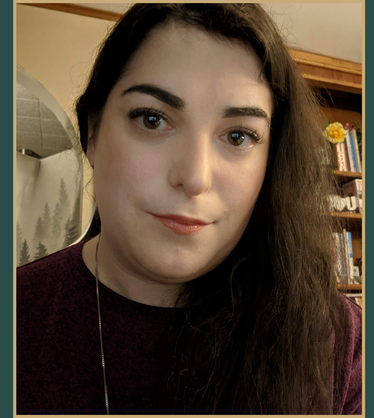

A lifetime patient turned service provider
I am a Certified Trauma and Resilience Life Coach, Educational Consultant, and a Coaching Mentor, with over twenty-five years of experience as an Advocate.
I have a B.A. in Psychology and a background in non-profit mental health providing coaching, education, trauma support, and resources to clients, as well as engaging in community outreach, and facilitating support groups for trauma survivors and individuals with mental health challenges. I received my current coaching certification from the Arizona Trauma Institute. I have been coaching for thirteen years.
QUESTIONS TO ASK BEFORE WORKING WITH ME
Are you able to recognize that not everyone moves toward success with speed and optimal access to what it takes to get there right off the bat?
Can you understand that the direction someone needs to be going in is not always forward, even though much of the noise out there has convinced us that forward is the only way?
Can you be open to learning new things, challenging long-standing beliefs, and possibly adjusting your approach based on new information?
As an advocate and trauma educator it is important for me to be transparent with you. What you learn from me may feel conflicting in some way to what you have always known or believed.
I want you to know that it's okay for feelings to come up in the learning process. The science of trauma is always evolving. It can also be heavy material to cover at times. It's natural to experience different feelings when we feel confronted by new information and start to break through walls in the process of making changes or shifting our beliefs.
These are key details to understand because this potentially applies to both you and some of your clients when you are working together.
The inner work starts with us.
COACHING, CONSULTING, MENTORSHIP, AND PEER SUPPORT
I offer a hybrid of services in my sessions because I realized that some people may need more support than others. As humans, we have different bodies, brains, and needs. Some of us have different styles of learning that work for best. The acknowledgement that the people that we work with may have challenges and differences is important in the process of fully supporting them from a starting point to actualization -- giving them optimal opportunity to apply what they have learned and reap the benefits of the work that they have done in in our sessions.
Coaching is designed to naturally encourage individuals through guidance, to find their own answers, discover their own truths, and develop their own strategies for finding clarity, solving their own problems, and finding their own solutions to an outcome that they have defined, or have in mind, and want to receive support around. It encourages self-discovery and personal growth in the area(s) that they want to work on. Think of the process of learning how to ride a bike. I will support you until you are confident in implement things on your own, but you are ultimately guided by your own skills (e.g. like the body mechanics needed to pedal the bike and maintain your balance) and what you innately know. (Adapted from Forbes Coaches Council)
Consulting is designed to give clients specific direction and guidance on what to do and how to do certain things. It focuses on a specific area -- e.g. business or coaching support. It differs from coaching because it enables us to provide streamlined direction through either teaching a process and/or offering guidance on how to implement methods, and strategies. Some of which may already exist and have been tried and tested. As a consultant, I offer very specific advice and provide solutions to clients based on my training, knowledge, and experience in my areas of specialization. In this aspect, you are being taught and/or guided by what I know and blend it into your work where aligned, in a way that feels good to you and meets your needs. (Adapted from Forbes Coaches Council)
In the true spirit of my decision to offer a hybrid of these services, even though there are times that you may be guided by what I know, I also encourage you to make decisions for yourself and most importantly, to ultimately be guided by what you know and want for yourself. It's okay to question things, and you can ask me as many questions as you need to along the way. In honesty, I may not always have an answer, but I will get back to you.
Mentorship is designed to offer support over a longer period of time. Instead of relying specifically on what you know, or what I know, we are coming together so that I can transfer my knowledge and offer you support as you learn and grow on your own. In this aspect, we work better, together. The transfer of knowledge is a cornerstone of my work and something that I incorporate within sessions when I can. I do not believe in gatekeeping for the sake of holding a perceived level of authority or to boost my positioning. Knowledge is a gift that saved me in many ways. I want to share what I know in case it might help others on their own journey.
Peer Support This is based on a mutually supportive alliance in which two or more people come together to exchange ideas, support one another, and share common ground in either personal and/or professional lived experience. In shared spaces, it is important to presume competence. I adopt a salutogenic, trauma informed approach to peer support, and prefer this over potentially creating hierarchal structures and a one-down relationship. Although some of my roles include leadership and supervision, I strive to approach from a place of curiousity, exemplify a willingness to ask questions, be okay with not knowing the answers, acknowledge that I may sometimes give the wrong ones, and do my best to release the need to be "right." I do not ask more from my clients or those I supervise, than I am willing to do for myself. I am willing to learn along the way, and be in the trenches of trauma recovery, learning, growth, and healing beside my peers.
MY APPROACH AND PHILOSOPHY
Updating soon for 2026
TRAUMA EDUCATION AND IMPLEMENTATION SUPPORT
I work with coaches, advocates, and service providers who want to be conscientious, ethically considerate, and apply trauma informed practices in their approach with their clients, audience, and prospective buyers.
First and foremost, I believe that there are ethical considerations when it comes to transparency, honesty, being responsible with our scope of practice, and in how we advocate, coach, and teach. There are many coaches, clinicians, and practitioners who say that they are trauma informed, when they are not. There are key differences to understand between the terms Trauma Aware, Trauma Informed, Trauma Sensitive, Trauma Trained, and Trauma Responsive.
Social media has contributed to harm because people are often misguided and misinformed around trauma informed care, what it is, what it entails, and where there are key differences in how we approach the work that we are doing. It's not a title to use because it sounds good, attracts clients, and brings you income.
I question whether someone is truly trauma informed when for example, when service providers tell their followers that no one can disagree with them because it is too uncomfortable, or when they are not being sensitive to diversity and differences across groups, communities, and cultures, beyond the spaces that they spend the most time in. We can't hit the block button in real life.
How does that translate to what they provide in private containers?
When things like this remain unchecked, especially as trauma informed care continues to cross over into unregulated industries such as coaching, the people that get harmed along the way may not be able to speak up or recognize what is happening. Where is the supervision to reduce risk on behalf of the clients?
Trauma Informed Care is not a modality or trend. It is a framework, one that is often picked apart because people are looking for the easiest parts that they can apply within their work. I want to also acknowledge that it gets fragmented because its broadness can make it complicated, and hard to uphold entirely. In addition trainings designed to cover things like diversity and culture are often repetitive, and not inclusive enough. I believe that it needs to be updated and adapted for practical application in todays social, emotional, relational, economic, and digital climates.
Trauma Informed care does not get handed to you in a certificate, course, or program.
How are we embodying this level of care when working with others?
Are we listening enough?
This includes listening and learning from individuals and groups across communities while being mindful of our biases and making sure we aren't engaging in selective inclusion to check off a box and making a commitment to learn beyond what a training has cherry picked for us to learn to fulfill components of becoming trauma informed.
At the end of the day, a piece of paper or a training doesn't guarantee that people can embody what they have learned in a meaningful way or genuinely apply what they have learned it, especially in challenging situations with clients. Perhaps some people just attended to get the certificate for clout. It's become a great buzzword for marketing and engagement. These are issues that we need to be aware of.
This is sacred work to me and not something I do for the sake of a title. I am developing my own way of teaching on the topic of trauma informed care based on my personal and professional experience as a lifetime patient and advocate who became both a provider and a recipient of services. This includes relying on my professional training. I want to help people become trauma informed in a less complicated way and be real about the journey.
I have shifted to using the term trauma sensitive where it applies to be more transparent about degrees of trauma work and to accommodate the different levels that people might be on in their journey. I have found that this is a more practical and realistic approach. This shift was necessary to articulate key differences in how things are presented by me to leave room for nuance and maintain professional integrity.
The organization that I trained under has also opted to move from focusing mostly on trauma informed care to incorporating the term trauma sensitive care where it applies. Knowing how long I have advocated for this shift I could not be happier.
Working in non-profit mental health I personally witnessed and can attest to how hard it can be for one individual to provide true trauma informed care at times. Large organizations that are heavily backed and connected with strategic support struggle, particularly in rural area.
I outline the specifics of what I can provide individuals, groups, and organizations when we are working together based on the setting, relevant context, and other factors. It's important to be transparent about what we are able to provide the people that we work with.
How we treat people and how we show up to provide care through the vehicle of service, matters. Embodiment matters. In unregulated spaces where folks have come to rely on us as we provide education, support, and resources, it is on us to hold ourselves accountable.
People are trusting us to help them, and to be who we say we are, as much as humanly possible.
How Can I Help?
• I will provide you with honest insight that I wish I had as I started venturing down the path to integrating trauma informed care into my work.
• I can provide foundational trauma education that touches on the science of trauma and toxic stress guided by trauma informed principles and practice, and other relevant areas of trauma work.
• I will discuss the differences between being trauma aware, trauma informed, trauma sensitive, trauma trained, and trauma responsive, in a way that aims to be well-rounded and not just focused on my own personal perspective.
• I will expand on inclusiveness to the extent that I personally can, and cover aspects of trauma education that are applicable within coaching and service provision.
• I will also touch on those which I believe may be more challenging to provide, and why. I will also have a resource list of coaches that I recommend listening to and learning from because I am not the only voice in the arena, nor do I want to be.
• Where applicable, I cover and review ethically considerate marketing practices and mindful etiquette that support your clients, audience, and prospective buyers through the facilitation of connection, co-regulation, and building trust by establishing a sense of safety, rapport, and predictability.
At the end of our time together, at request, I will connect you with resources and other service providers that can continue to enhance your journey.
I also address possible challenges and the resistance that you may face:
1. As someone who is against "bro-marketing" strategies, manipulation, and non-compliant tactics that are commonly taught and used in the online space.
2. As a service provider striving to provide trauma support and care within coaching and service provision.
LIMITATIONS OF SERVICE FULLFILMENT AS A CONSULTANT FOR NON-PROFIT ORGS
The purpose of this section is to help create mutual understanding of our roles, and to support transparency, and psychological safety within the context of our professional relationship. I want to be open about acknowledging that the conditions and variables outlined here can influence outcomes and affect our shared responsibility for sustainable change.
I approach all services through a trauma-informed lens, recognizing that individuals and systems may carry stress responses, histories, and patterns that affect readiness, engagement, and implementation.
1. Scope of Consulting Services For Non-Profit Organizations
As a consultant, my role is advisory and facilitative, rather than directive. I can partner with you to help identify strengths, evaluate your processes and approach, uncover barriers, and support adaptive change so that you and/or your team are better prepared to work with clients and can handle the inevitability challenging dilemmas within the context of service provision. This includes looking broadly at delivery routes, currentwork flows, and potentially making changes to reduce rates of burnout where needed and possible.
Outcomes depend on the health of the organization's internal systems, willingness and capacity to engage in reflective practice, staff well-being, and the realistic ability to implement and integrate proposed recommendations and changes across systems. I can prioritize creating conditions for learning, support, reflection, and growth, but I cannot fix larger underlying issues if there are any.
2. My Commitment to Ethically Mindful, Trauma Informed Practice (For Organizations)
Providing consulting and education through the lens of trauma informed care can look like:
Safety: Creating spaces where all participants can engage without fear of shame, harm, or judgment.
Trustworthiness: Communicating transparently about scope, limitations, and progress.
Collaboration: Inviting shared decision-making and co-ownership of the process where relevant and applicable.
Empowerment: Supporting an organization’s internal capacity and self-determination.
Cultural Humility: Approaching situations with curiosity rather than assumptions. Recognizing the unique contexts, histories, and identities that shape each organization and its communities.
Your organization is encouraged to uphold these same principles during our time together, alongside staff, volunteers, and stakeholders.
3. Limitations of Service Fulfillment
While I am deeply committed to ethical, informed practice, there are natural boundaries and limitations that must be acknowledged to preserve clarity, safety, and mutual accountability.
a. Implementation Ownership
I can offer guidance, tools, resources, and frameworks, but the implementation and integration of plans and strategies rests with the leaders of the organization.
Outcomes also depend on the organization's ability to:
- Maintain alignment between leadership decisions and stated goals.
- Allocate appropriate time, resources, and staff support for implementation.
- Ensure staff and volunteers are equipped for their roles and have a clear understanding of the mission and vision.
- Engage in consistent communication, presence, and follow-through, from back-end execution to foundational leadership.
- Integrate recommendations into existing systems and processes.
I cannot assume responsibility for internal decision-making, leadership dynamics, and actions that fall outside my professional role and scope of practice. I will not assume or take on responsibility for your risk.
b. Organizational Health and Readiness
Please be aware that organizational health directly impacts outcomes. The following factors may influence the pace and effectiveness of progress:
Leadership Stability and Trust: Frequent turnover, unclear authority, or lack of psychological safety can create uncertainty that slows growth.
Organizational Culture: Environments marked by burnout, fear, or unaddressed conflict may require foundational healing before strategic change can take hold.
Capacity and Competing Priorities: Limited resources or overextended staff may reduce the organization’s ability to engage and fully execute and complete tasks.
Change Fatigue or Stress Responses: When an organization is already under high stress, new initiatives may unintentionally trigger resistance or overwhelm.
I will approach these dynamics with compassion and curiosity but cannot control or resolve systemic or leadership factors that are internal to your organization.
c. Information Sharing and Transparency
Mutually beneficial collaboration depends on open and respectful communication. My ability to offer responsive and relevant guidance and support requires accurate information, and timely responses about required steps or refinements on the journey to task or objective completion.
Limited communication or restricted access to data may limit my ability to evaluate things, adjust strategies effectively, and assist with making progress towards desired outcomes.
d. External and Contextual Factors
External realities, such as shifts in funding, community needs, policies, or crises may also impact the implementation of recommendations. These factors are beyond my control, but I will do my best to navigate these situations collaboratively and adaptively, keeping in mind my own capacity, as they arise.
4. Shared Responsibility for Change
Our work together is grounded in partnership rather than hierarchy. This means that we share responsibility for and towards:
- Co-creating goals that are realistic, compassionate, and context-sensitive.
- Maintaining clear communication, feedback, and reflection throughout the process.
- Centering psychological safety and trust in all interactions.
- Engaging in honest dialogue about challenges and barriers to progress.
- Celebrating learning, growth, and incremental change.
5. Confidentiality
I am committed to maintaining confidentiality, professional boundaries, and ethical integrity for the duration which I am asked to work with you. Your organization is likewise expected to act in good faith, fostering a collaborative environment conducive to learning, change, growth, and collaboration.
6. No Guarantee of Specific Outcomes
Because my services address human systems, learning processes, and complex organizational dynamics, results cannot be guaranteed.
7. Acknowledgment
The organization and I will affirm a shared commitment to trauma informed principles, ethically mindful practices, integrity, and mutual respect. We also recognize and acknowledge that organizational health, readiness, engagement, and access to resources play a central role in determining the outcomes of our work together.
Paving the way for a different experience
It's time for something different
I am creating my own community space where I aim to make it possible for people to have a better experience as they are learning, exploring, and growing in their personal and professional practices.
I will be offering support, encouragement, education, resources, and different kinds of opportunities for my members in this space.
I will be cutting down on video calls this year so there will be once or twice a month where you can book a call with me for us to connect outside of any 1:1 Service Requests.
I am going to try to work with Google Meet this year, instead of Zoom. I will play that by ear and see how it goes. This community will be housed on Facebook and have a place on my GHL Platform.
To learn more, visit The Relational Network Community

Encouraging supportive environments that help facilitate learning, healing, and optimal wellness.
I want you to get the support and resources that you need without being worried that you will be bullied or harassed by your peers in the online groups for sharing an experience, asking questions, and serving others in a way that goes against the grain of industry standards.
MY PERSONAL STANCE AS A MENTAL HEALTH AND DISABILITY ADVOCATE
I advocate for personal autonomy, and the development and nurturing of our individual identities and preferences. I support empowerment, voice, and choice, including choices around terminology, communication styles, language, symbolism, and any affirming supports that one may need, and prefer.
"Advocacy and its relationship to someone's needs, preferences, and how they human, is not a monolith."
Get started
enjoy weekly newsletters
SIGN UP FOR MY EMAIL LIST
🔒 Your information is 100% secure
MY PAY IT FORWARD SERVICE MODEL
Select whichever donation methods resonates with you at this time from the options below:
🌿 It's okay to ask for help. It's ok if you don't have a lot of money in your startup phase and would rather inquire about free services and support first, than waste valuable resources on things that you aren't sure you need yet. You do not need to sell out, use-brute force tactics, or give in to industry pressure, or max out your credit cards to attract clients and to be good at what you do. 🌿
MY SERVICES ARE FREE AND DONATION BASED
I do not receive or accept money in exchange for my services. All of my services are free and offered as my energy allows. If you feel led to support me, and would like to help make my vision for a genuine pay-it-forward service model come to fruition, you can:
Make a Donation to one of my favorite causes on my Approved Cause List
Donate a Gift From Pavilion For Hospital Patients (Jones Memorial Hospital, Wellsville, NY)
Purchase From My Amazon Wishlist
Accessible Support
I offer accessible services and education to build the kind of integral care I believe should exist out in society. Opportunities for fulfillment, self-healing, and support should be accessible. In alignment with my mission, values, I provide avenues to support and resources that folks may not otherwise have.
Additionally, in the U.S., many disabled folks on Supplemental Security Income (SSI) cannot provide support in the same way as our peers for a variety of reasons including the dynamic nature of our conditions. Many of us cannot have more than 2k in income/resources in the bank. The average accessible offer with a payment plan in the online coaching space is often still out of reach for many people.
There are also folks who have experienced trauma from being taken advantage of and scammed by coaches and other helping professionals. I believe that contributing to systemic change is tied into accessibility, awareness, authenticity, and personal responsibility with our intentions and the energy that we put out into the world.
🌿Accessible support creates opportunities for people to experience the power of co-regulation and transformation in their lives.🌿
Typical transactions involve the compensation of money for goods and services. I believe that valuable compensation is not just limited to money. The amount spent does not always determine the quality of service and it certainly does not dictate our value or worthiness.
Any monetary donations made to the selected charities on my approved cause list go directly to those charities at the time of payment. All transactions are made through their respective websites.
Change starts with me, through modeling. Your success story does not have to be determined by your income bracket, or what you can afford at this moment. Your worth and the value can be measured beyond a dollar amount.
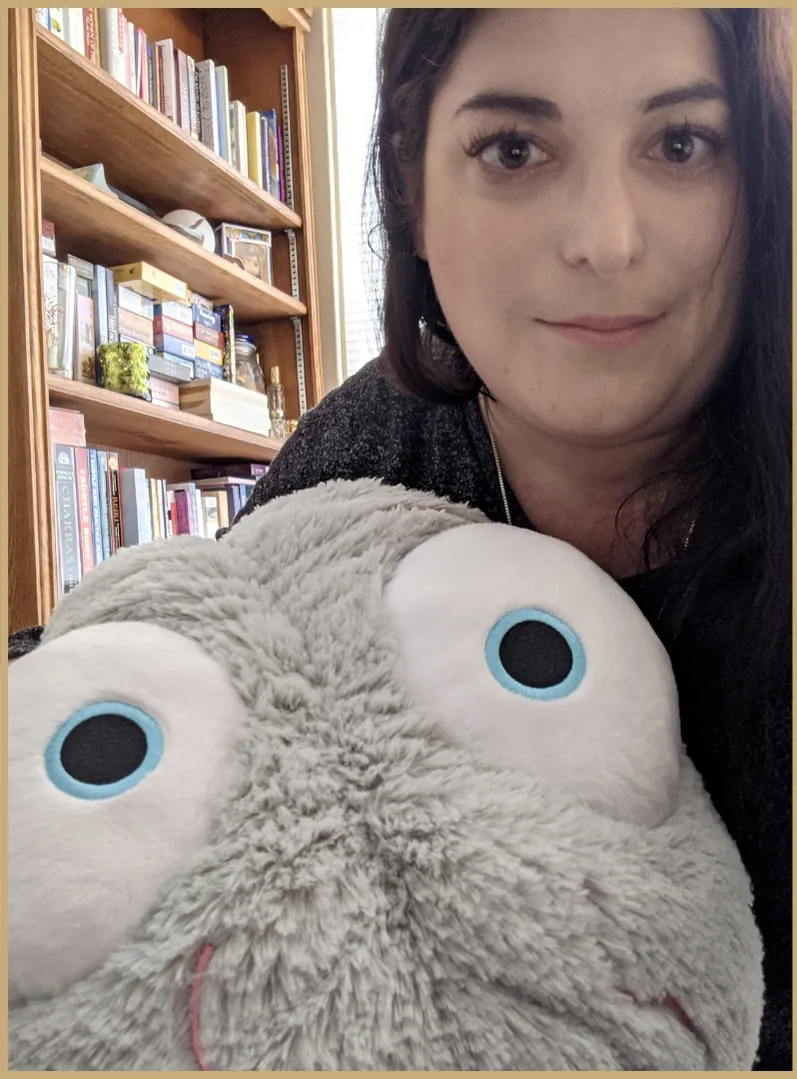
JENNIFER ANN FALANDYS
#REALTALK | FROM AN ADVOCATES HEART
I write about topics such as: Mental Health, Advocacy, Coaching, Peer Support, Neuroscience, Trauma Sensitive Care, Ethical Business Practices, Personal and Professional Resilience, Complex Trauma, Disability and Neurodivergent Lifestyle, and more.
You can support my writing by subscribing to my Substack and signing up to receive emails!
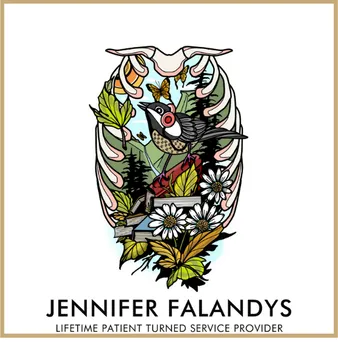
MY PODCAST
Coming Back for 2025
I will be putting out a request for guests and topics very soon

RESOURCES
A continually updated list of crisis intervention numbers, care providers, trauma informed care resources, and mental health support links. Also includes Book / Blog / Podcast recommendations, and more!

JENNIFER ANN
IMPORTANT LINKS
NEWS
LEGAL
* Jennifer is not a doctor, medical professional, healthcare provider, therapist, counselor, or lawyer. Jennifer's coaching and consulting sessions, along with any discussions of ethics and compliance, are not to be used or substituted as legal advice. Your decision to book and participate in these sessions or onboard her as a coach or consultant within your organization, does not create a relationship in which she becomes your legal counsel or compliance representative in any form or capacity. You, and/or your organization are ultimately in charge of and responsible for seeking out a legal professional for all legal matters, including compliance, and doing your own due diligence, including reviewing your own marketing, policies, procedures, and professional practices. Offering peer support or seeing clients without policies and proceedures in place, protocols for prevention, and a clinical referral process is at your own risk. You are ultimately in charge of and responsible for the decisions and investments that you choose or do not choose to make for yourself, your business, your clients, and/or the people you serve and support. None of her services nor the support she provides are a substitute for when you need to find a lawyer, therapist, or a qualified professional. Jennifer does not assume your risk. Approaching or messaging Jennifer with questions or in the name of getting support does not constitute or create a service agreement. Jennifer does not provide crisis intervention. Nothing Jennifer shares through her website, programs, products, materials, or the content she shares across social media platforms is to be used as a substitute for professional medical care, therapy, clinical mental health care, or counseling, nor is intended as medical, theraputic, legal, or financial advice. Jennifer does not teach you how to make more money. As a matter of ethics, she must be upfront that current pricing trends in the majority of the market are a conflict of interest based on her mission, and priorities. By filling out any forms or submitting information through forms, email links, or a chat app on this site, please be aware that you are consenting to the form builder and chat app collecting and processing the information you provided and are indicating that Jennifer Ann Falandys can send you a follow-up message or email. Please see her Service Disclaimer and Privacy Policy for full disclosures.
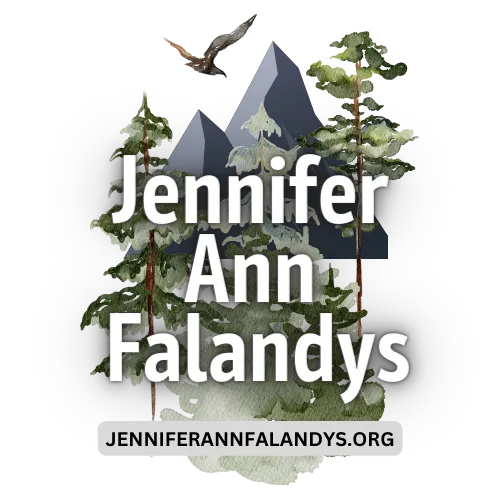
🌿 Designed January 2025
Jennifer Ann Falandys
Olean, New York, 14760
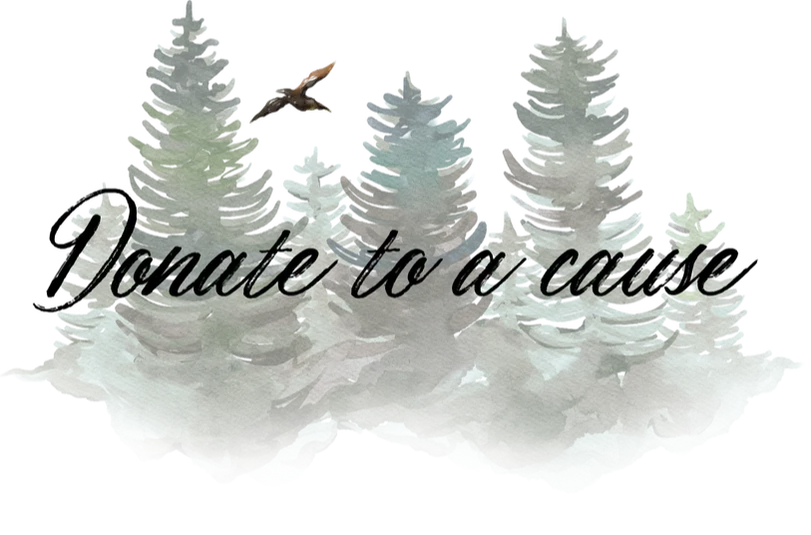


Facebook
Instagram
X
LinkedIn
Youtube
TikTok